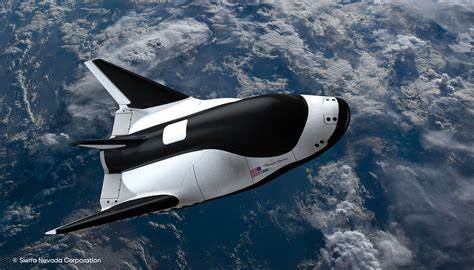"New research into Airborne Wind Energy Systems (AWES), funded by a substantial Engineering and Physical Sciences Research Council (EPSRC) grant, seeks to harness high-altitude wind energy using drones, aiming to overcome challenges in system stability and enhance commercial viability, supporting the UK’s net-zero goals. Image of a prototype Kitemill drone in action. Credit: Kitemill" (ScitechDaily, Energy From the Sky: How Drones Can Generate Electricity)
The drone can harness energy from the sky using solar panels and wind turbines. The drone itself can rise into a high atmosphere using its engines. Their drone shuts down engines. And then the drone can hover in jettisons or rising air pillars like sailplanes.
And there the electric engine that turns into wind turbines and solar panels can create electricity. That drone can use advanced autopilot and things like lidars to search right air flows. The idea is that. This kind of drone can minimize its electric use.
In this video, the system uses 500 m. flying systems. But it's possible. This type of system can also have stratospheric altitudes. The stratospheric system requires wireless energy transport. Or it requires nanotechnical electric wire that is lightweight enough.
Then it can send more energy to the ground. This kind of system is economical only, if it can create more electricity than it uses. The induction electric engines can used as electric engines and generators. The idea is that the drone is like an intelligent kite that creates electricity. The Dutch engineers created an idea of intelligent kites that put wind generators hovering in the atmosphere.
*********************************************
Boeing Condor
In some visions, the 30 km altitude flying large-scale drones can also transport small rockets or space shuttles to the edge of space. And there those systems can launch their cargo. The carrier can be a modified Boeing Condor that uses an electric engine system, and the payload can be a Pegasus or Dream Chaser-type small shuttle.
Dream Chaser
*********************************************
The thing in this kind of system is how to transport electricity into the ground. In simplest version. The drone can fill its batteries, and then it lands at the base. There users connect wires to those batteries. But this version is ineffective.
A better way is to use coherent radio, laser, or microwave transmissions. This system makes it possible for drones to transmit energy to ground stations from high altitudes. This is a more effective way to transport information and energy to an electric network.
The same system can used as a communication platform. The system can act as a low-flying satellite. And in some future visions. That kind of "lightweight satellites". Or atmospheric satellites replace part of orbital satellites.
The high-altitude reconnaissance and surveillance platform can use the same principles and technology as energy-producing drones. High-altitude drones can also destroy incoming ammunition and lower-flying aircraft and drones using laser and microwave systems.
The drone can produce energy with the same method that the energy production drone uses.
The high-altitude drones can also protect areas against enemy low-flying crafts. The high-flying drone can shoot low-flying drones and incoming ammunition. The solar-power drone that can use solar power in the daytime, and turn its induction engines into a wind generator that allows it to load batteries for nighttime can fly at very high altitudes.
The system might have one engine that can use solar power and another engine that can used as a wind generator. The system can shut down both engines and then glide between rising air pillars. In that period the system could use engines as the wind generators. And there that system can observe area. When it sees incoming ammunition like missiles it can shoot them using laser or microwave generators. This is one version of the multiuse technology.
https://scitechdaily.com/energy-from-the-sky-how-drones-can-generate-electricity/
https://en.wikipedia.org/wiki/Boeing_Condor
https://en.wikipedia.org/wiki/Dream_Chaser





No comments:
Post a Comment
Note: Only a member of this blog may post a comment.